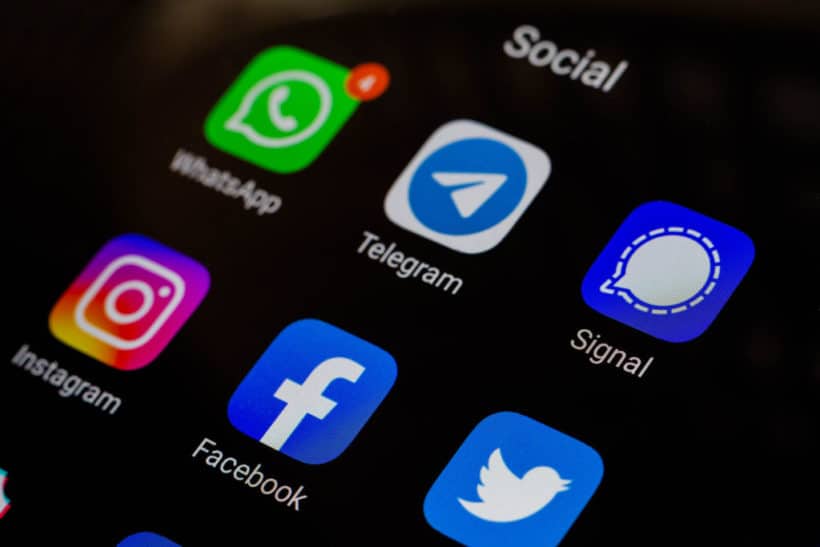
By now most of us have heard about WhatsApp’s privacy conundrum which it quickly backtracked on https://www.cnbcafrica.com/2021/01/18/whatsapp-delays-privacy-update-over-user-confusion-and-backlash-about-facebook-data-sharing/ after public backlash.
We’ve also heard about how social media played a part in the U.S. Capitol’s storming on 6 January and how social media platforms banned Trump and other right-leaning voices; how Apple and Google banned the Twitter-alternative Parler from their app stores; and then how Amazon Web Services (AWS), who were hosting Parler, shut the whole thing down entirely.
Since then, things have continued to escalate, with Apple facing a lawsuit https://mashable.com/article/apple-telegram-lawsuit/ for not removing Telegram from its App Store because of calls to violence apparently taking place there too.
Free-speech arguments aside, there is a massive silver-lining in all of this. This year might, at last, be the year of social media’s reckoning. WhatsApp’s privacy miscalculation has led to what Telegram founder, Pavel Durov has called the “largest digital migration in human history https://t.me/durovschat.
Last year, Facebook threatened to shut down its services in the EU as a result of it enforcing its General Data Protection Regulation (GDPR) rules https://www.socialmediatoday.com/news/facebook-threatens-to-leave-europe-due-to-proposed-new-data-sharing-regulat/585619/. Change is coming.
For years, social media has been protected in the U.S. under a law called “Section 230” which protects an “interactive computer service” from lawsuits if a user or client on its platform engages in illegal behaviour (with some exceptions).
This is why, unlike publishers, Facebook and Twitter are not liable for what users put on their platforms. But the fact remains that these platforms are monetising what users are doing and controversial accounts keep people on the platform and are actually good for business. Plus, Twitter and Facebook’s enforcement of their own terms of service is very haphazard.
In 2018, Facebook was linked to genocide in Myanmar https://www.nytimes.com/2018/10/15/technology/myanmar-facebook-genocide.html. There are many megalomaniac dictators tweeting as you read this. Both platforms were silent when the PR firm Bell Pottinger was using their algorithms to drive open our racial wounds in South Africa; or when xenophobic violence was incited on these platforms; or even when people died in the mid-2020 Black Lives Matter protests in the U.S. due to what was being organised on their platforms.
(Incidentally, Twitter seems to be cracking down on Antifa accounts too now. https://nypost.com/2021/01/22/twitter-suspends-antifa-accounts-with-over-71k-followers/). In fact, this sort-of practice hearkens all the way back to the first, heady days when we were all blown away by how #OccupyWallStreet went mainstream because of social media and how the Arab Spring was able to happen because of these platforms.
Twitter may have been happy for all of this because it was not affecting them back home. Now, when it has, the penny seems to be dropping and the pressure seems to finally be on.
Perhaps you are partial to some of these movements, but the point is to note that these platforms increasingly have to act more like publishers than “Section 230” organisations.
I think this is a good development. Their ability to get the best of both worlds—to not be held liable while increasing their profits through ‘gamification’ and addiction to their platforms, monetising human nature’s worst aspects—is now going to run to an end. It’s time to classify them differently.
There is a bigger picture here that I think those who are claiming and advising people stay on Whatsapp appear to be missing. It’s time we demand innovation that doesn’t keep us reliant and addicted to these platforms but find better ways to serve us, even as Africans.
It’s time to check out local services like 2go https://www.2go.im/, for instance. It’s also a good time for us to form our own laws that we want applied that will benefit us, just as the EU has.
This is the big picture and right now, you and I, the “users” of these platforms have an opportunity to make an impact by getting off the platforms that make money from our time, our emotions, our relationships, our photos, our lives, and insist on better, more human technology.
Ryan Peter is the editor-in-chief of Disrupting Africa (disruptingafrica.com), a freelancer writer and ghostwriter. See more info at ryanpeterwrites.com.

